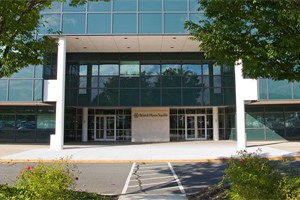 Bristol-Myers Squibb was given an early Christmas present by the FDA last night after it received an accelerated approval for a new melanoma licence for its oncology treatment Opdivo (nivolumab).
Bristol-Myers Squibb was given an early Christmas present by the FDA last night after it received an accelerated approval for a new melanoma licence for its oncology treatment Opdivo (nivolumab).
The drug, which works as a therapeutic vaccine that inhibits PD-1, is now licenced for patients with unresectable (cannot be removed by surgery) or advanced melanoma. It was granted authorisation under the regulator’s expedited review programme which allows a drug’s approval months ahead of the agency’s usual timings.
The FDA’s endorsement is based on trial data that showed 32% of patients receiving Opdivo saw their tumours shrink, compared with 11% of those given conventional chemotherapy.
It is now indicated for patients who have been previously treated with BMS’s original therapeutic vaccine Yervoy (ipilimumab) and for melanoma patients whose tumours express a gene mutation called BRAF V600, for use after treatment with BMS’s Yervoy (ipilimumab) and a BRAF inhibitor, such as Roche’s Zelboraf (vemurafenib) or GSK’s Tafinlar (dabrafenib).
This means Opdivo will be used as a second or third line treatment, pushing it down the treatment pathway – something that will inevitably impact its sales potential.
It has also lost out to fierce rival Merck & Co, whose Keytruda (pembrolizumab) was approved for advanced melanoma by the FDA in September. It too was not given a first-line setting, although both firms are likely to seek this more lucrative licence in the future.
But despite coming second to market and in a later setting, BMS should still see blockbuster sales at its peak for Opdivo, with Keytruda also expected to make around $1.7bn at its height, although Merck’s medicine may make more given its first-to-market status.
This is BMS’s second therapeutic vaccine to hit the market for melanoma after the 2011 US approval of Yervoy. The drug works in a similar way to Opdivo by ‘teaching’ the patient’s body to help find and destroy solid tumours. It made $960m in 2013.
Opdivo became the world’s first approved PD-1 inhibitor in July when it received an approval in Japan. The drug is also being evaluated for use in other cancers, including lymphoma and lung cancer, with the EMA currently reviewing the drug for a licence in non-small cell lung cancer.




